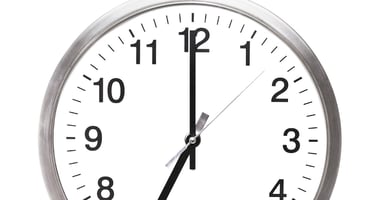Naltrexone is a proven treatment for opioid use disorder (OUD), but its clinical usefulness, when...
Extended-Release Naltrexone as Effective, Safe as Buprenorphine-Naloxone, Study Finds
 |
After detoxification, 159 opioid-dependent adults (according to DSM-4) were randomly assigned to either daily oral flexible dose buprenorphine-naloxone (4 mg/d to 24 mg/d) or extended-release naltrexone hydrochloride (380 mg, administered intramuscularly every fourth week) for 12 weeks. At the start of the trial and again at 4, 8, and 12 weeks, patients underwent a structured interview using the European version of the Addiction Severity Index covering drug use, physical and mental health, work, education, and criminal activity.
Treatment with extended-release naltrexone was found to be as effective as buprenorphine-naloxone at maintaining retention in treatment (mean number of days until dropout from study medication: 69.3 days and 63.7 days of 84 days, respectively). Additionally, there were no significant differences between the treatment groups in the proportion of opioid-negative urine drug tests, or pattern of use of amphetamine, cocaine, alcohol, cannabis, or injecting drugs.
Participants receiving extended-release naltrexone reported significantly less heroin craving and thoughts about heroin than did buprenorphine-naloxone participants, as well as greater treatment satisfaction. Individuals in the extended-release naltrexone group reported more adverse events than those in the buprenorphine-naloxone group (49 [69.0%] vs 25 [34.7%]). Some of these events were related to induced or experienced withdrawal symptoms, such as nausea, chills, shivering, diarrhea, and sneezing, the authors reported.
“Maintaining short-term opioid abstinence with extended-release naltrexone should be considered an equal treatment alternative to buprenorphine-naloxone as medication-assisted treatment for opioid-dependent individuals,” Lars Tanum, M.D., D.M.Sc., of the University of Oslo in Norway and colleagues wrote.
For related information, see the Psychiatric News article “Low-Dose Naltrexone May Mitigate Severity of Opioid Withdrawal During Detox" and the Psychiatric Services article “Fentanyl and the Evolving Opioid Epidemic: What Strategies Should Policy Makers Consider?.”
(Image: iStock/Ca-ssis)





